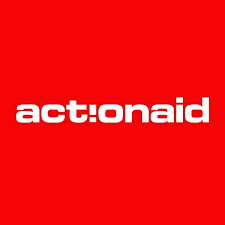ActionAid Ireland is celebrating the tenth year of the ActionTalks national speech writing competition and is calling for young people aged 14 to 18 from Dublin to enter. To-date Dublin has had the highest number of entrants overall, with 166 entrants from 42 schools entering. Twelve students from Dublin have reached the final stage of the competition and one of the winners so far have hailed from Dublin. Overall, since its inception, 1,103 young people have entered the competition from 223 schools across the country. The competition is an opportunity for young people to explore the root causes of local and global injustices and inequalities. This year’s themes focus on the climate crisis, gender-based violence and unpaid care work.
Karol Balfe, CEO of ActionAid Ireland said: “We are delighted to launch the ActionTalks national speech writing competition for the tenth time. It is astonishing that one-third of secondary schools in Ireland have entered the competition. We’re really grateful to schools in Dublin for taking such an active role in the competition over the years. Year after year students across Ireland deliver original and compelling speeches on important global issues. We can’t wait to see what students come up with this year.”
ActionAid works with women and children, as they take the lead in claiming their human rights to build a more just world. ActionAid’s Women’s Rights programme, funded by Irish Aid, Department of Foreign Affairs, works to eliminate violence against women and girls. Irish Aid programmes are funded by Irish citizens and are part of Ireland’s important global role. To take part in the ActionTalks competition, students are invited to write a 600 to 800 words speech on three specific topics, on the structural changes needed to reduce unpaid care work, what
Ireland can reduce the rates of gender-based violence internationally and how agroecology could be a solution to the climate crisis.
Karol Balfe continued “It’s really easy to enter, teachers simply email us with their student’s speeches. Fifteen students will go forward to the regional finals, where the winners get a €50 voucher each. Then in March, six finalists present their speeches to a panel of expert judges, the overall winner can get a €500 voucher, and €100 for the teacher. We’re hoping to see entrants write innovative, well-researched, and creative speeches, using their own perspective from growing up in Ireland. We’re also interested in how students examine how the concentration of power and resources in northern countries impacts the lives of people in the global south.”


